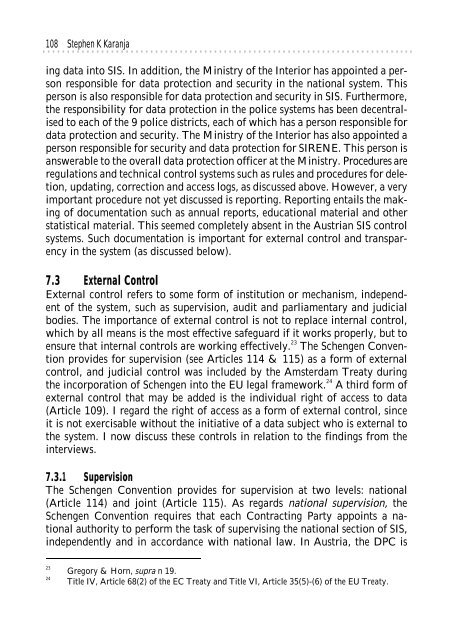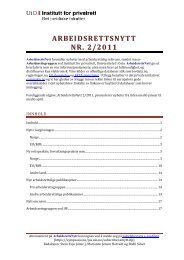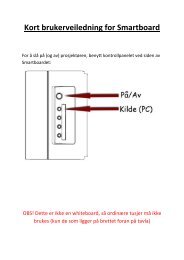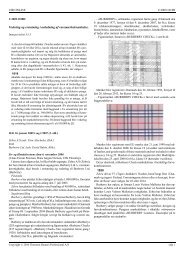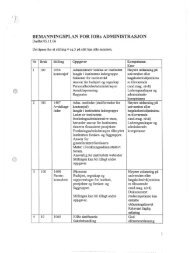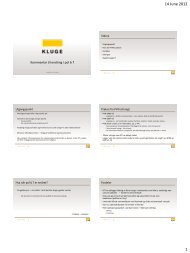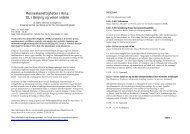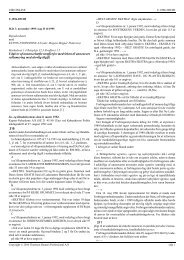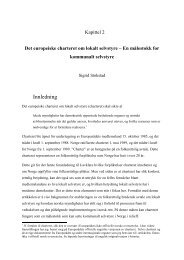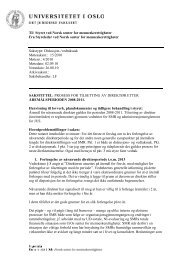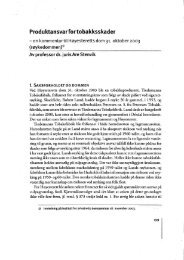Lee A. Bygrave (red.) YULEX 2002 - Universitetet i Oslo
Lee A. Bygrave (red.) YULEX 2002 - Universitetet i Oslo
Lee A. Bygrave (red.) YULEX 2002 - Universitetet i Oslo
Create successful ePaper yourself
Turn your PDF publications into a flip-book with our unique Google optimized e-Paper software.
............................................................................<br />
108 Stephen K Karanja<br />
ing data into SIS. In addition, the Ministry of the Interior has appointed a person<br />
responsible for data protection and security in the national system. This<br />
person is also responsible for data protection and security in SIS. Furthermore,<br />
the responsibility for data protection in the police systems has been decentralised<br />
to each of the 9 police districts, each of which has a person responsible for<br />
data protection and security. The Ministry of the Interior has also appointed a<br />
person responsible for security and data protection for SIRENE. This person is<br />
answerable to the overall data protection officer at the Ministry. Procedures are<br />
regulations and technical control systems such as rules and procedures for deletion,<br />
updating, correction and access logs, as discussed above. However, a very<br />
important procedure not yet discussed is reporting. Reporting entails the making<br />
of documentation such as annual reports, educational material and other<br />
statistical material. This seemed completely absent in the Austrian SIS control<br />
systems. Such documentation is important for external control and transparency<br />
in the system (as discussed below).<br />
7.3 External Control<br />
External control refers to some form of institution or mechanism, independent<br />
of the system, such as supervision, audit and parliamentary and judicial<br />
bodies. The importance of external control is not to replace internal control,<br />
which by all means is the most effective safeguard if it works properly, but to<br />
ensure that internal controls are working effectively. 23 The Schengen Convention<br />
provides for supervision (see Articles 114 & 115) as a form of external<br />
control, and judicial control was included by the Amsterdam Treaty during<br />
the incorporation of Schengen into the EU legal framework. 24 A third form of<br />
external control that may be added is the individual right of access to data<br />
(Article 109). I regard the right of access as a form of external control, since<br />
it is not exercisable without the initiative of a data subject who is external to<br />
the system. I now discuss these controls in relation to the findings from the<br />
interviews.<br />
7.3.1 Supervision<br />
The Schengen Convention provides for supervision at two levels: national<br />
(Article 114) and joint (Article 115). As regards national supervision, the<br />
Schengen Convention requires that each Contracting Party appoints a national<br />
authority to perform the task of supervising the national section of SIS,<br />
independently and in accordance with national law. In Austria, the DPC is<br />
23 Gregory & Horn, supra n 19.<br />
24 Title IV, Article 68(2) of the EC Treaty and Title VI, Article 35(5)-(6) of the EU Treaty.


